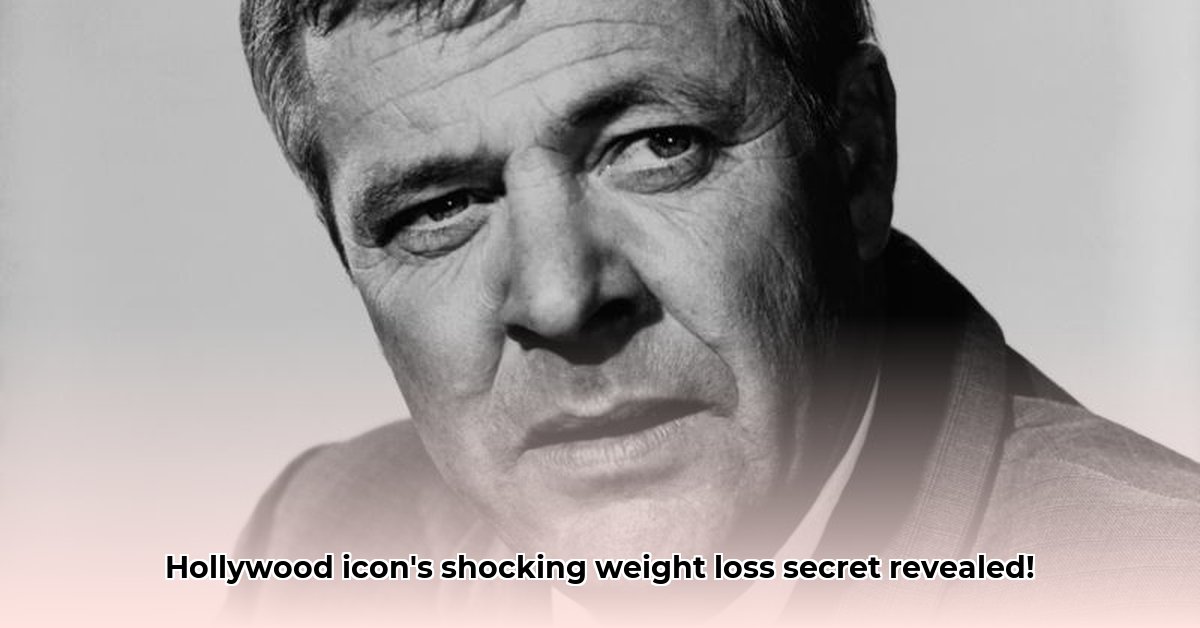
A Life on Stage and Screen: Navigating the Complexities of Fame
William Windom's life was a tapestry woven with threads of extraordinary achievement and quiet struggle. His career, a remarkable journey spanning Broadway, television classics like The Farmer's Daughter and Murder, She Wrote, and even a memorable role alongside Gregory Peck in To Kill a Mockingbird, captivated audiences for decades. Yet, beneath the surface of his celebrated performances lay a more personal narrative, subtly hinted at in occasional references to weight fluctuations. Understanding these changes requires delving beyond simple metrics, exploring the broader context of his life, experiences, and the pressures inherent in his chosen profession. Could his wartime experiences have played a role? How did the relentless demands of Hollywood impact his well-being? These are questions we will address, acknowledging where specifics are lacking in readily available sources and avoiding speculative leaps.
The Weight of War: A Defining Chapter
Windom's World War II service, notably his participation in the D-Day landings at Normandy and Operation Market Garden, irrevocably shaped his character and likely influenced his later life. These were not mere historical events; they were crucible experiences forging a resilience evident throughout his career. While no direct causal link between his wartime experiences and any potential weight changes can be definitively established from currently available information, the lasting impact of trauma—both physical and psychological—is well-documented. It is perfectly plausible that the stressors of combat contributed to physical and emotional challenges that manifested in various ways later in his life. Further research into his personal papers and military records might provide clarity on this complex issue. Did the unimaginable horrors he witnessed contribute to future health concerns? It is a question worthy of further exploration.
The Glimmer and Shadow of Hollywood's Glamour
Windom's illustrious career demanded unwavering dedication, long hours, and a constant need to maintain a public image. The entertainment industry, with its inherent scrutiny and competition, often imposes unrealistic standards of physical appearance. This pressure-cooker environment may have influenced dietary habits and contributed to weight fluctuations. The relentless cycle of auditions, the perpetual need to project a specific image, and the inherent anxieties of the profession undoubtedly took their toll. It's crucial to remember that an actor's life is rarely simply about performance; it encompasses a multifaceted battle for self-preservation and success. Was Windom subjected to these intense pressures? Did the demands of his career outweigh his well-being? These questions remain largely unanswered.
Unraveling the Enigma: The Search for Answers
While some accounts mention variations in Windom's weight over time, the specifics remain elusive. Were these short-term adjustments related to particular roles or indicative of longer-term health and lifestyle changes? Did he consciously manage his weight, or were these fluctuations a mere reflection of the inherent tensions of his life? The lack of definitive information highlights the limitations of our current understanding and underscores the need for thorough research.
To gain a deeper, more comprehensive understanding, future research should focus on several key areas:
Accessing Personal Archives: Letters, diaries, and interviews with family and friends could offer invaluable insights into William Windom's personal thoughts and experiences regarding his body image and health.
Investigating Industry Practices: Exploring industry archives may shed light on the unspoken pressures actors faced regarding their physical appearance, particularly in the mid-20th century.
Consulting Expert Opinions: Collaboration with historians specializing in the entertainment industry, biographers, and mental health professionals would provide valuable context and expertise in interpreting available evidence.
This article is not merely a chronicle of William Windom's weight; it's an exploration of his life's complexities, showcasing the interplay between public perception and personal struggle. The full story remains untold, a testament to the often-elusive nature of personal narratives. It’s a story deserving of continued attention, not only for its inherent intrigue but also for the lessons it potentially offers about the challenges faced within the entertainment industry and the lasting impact of trauma. It is a story that invites reflection on the complexities of life, both on and off the screen.